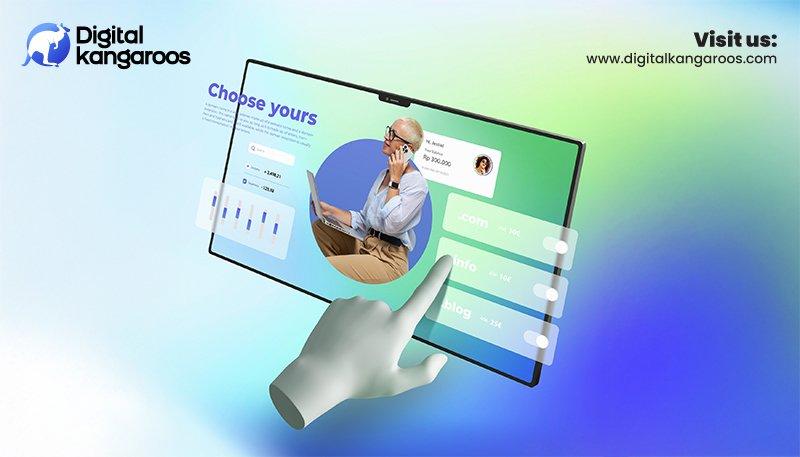Top Skills and Qualities every Learning and Development Specialist Should Have
The education technology sector is rapidly evolving,and with it,the demand for talented professionals in learning and development (L&D) continues to rise. Whether you’re looking to work in a university, college, or school, mastering a range of technical, interpersonal, and instructional skills is critical for success as a Learning and Development Specialist. In this comprehensive guide, we’ll explore the key skills and qualities every aspiring or current L&D specialist should possess to excel in the dynamic world of educational technology.
Introduction: The Role of Learning and Development Specialists in EdTech
Learning and Development Specialists play a pivotal role in shaping how educational institutions approach staff and faculty training, student learning experiences, and the integration of technology into curricula. As a bridge between education and technology, they help create engaging, effective, and accessible digital learning solutions. understanding the unique mix of competencies required in these roles can give job seekers a competitive edge and help them thrive in the modern educational environment.
Why Skills Matter in Education Technology Careers
Education technology jobs demand a unique combination of instructional expertise,technical know-how,and people skills. Institutions seek professionals who don’t just understand pedagogy,but also have the ability to leverage the latest technologies,foster collaboration,and drive positive learning outcomes. Knowing wich skills are most valued can greatly enhance your employability and effectiveness as a Learning and Development Specialist.
Essential Skills for Learning and Development Specialists
Here are the most in-demand skills in educational technology careers for those seeking L&D specialist roles at universities, colleges, or schools:
1. Instructional Design Skills
- Curriculum Development: ability to design learner-centered courses that align with educational objectives and standards.
- eLearning Content Creation: Proficiency in authoring tools (such as Articulate Storyline,Adobe Captivate,or Camtasia) to create engaging digital learning modules.
- Assessment Design: Crafting formative and summative assessments that measure learning effectively.
2. Technological Proficiency
- LMS Management: Familiarity with Learning Management Systems (e.g., Canvas, Moodle, Blackboard) for course delivery and analytics.
- Hybrid and Online Learning Tools: Experiance with platforms such as Zoom, Microsoft teams, and Google Classroom for synchronous and asynchronous learning.
- Basic Coding and Troubleshooting: understanding of educational software, web technologies, and the ability to resolve common issues.
3. Project Management
- Association: Skill in prioritizing tasks, managing timelines, and overseeing multiple projects concurrently.
- Agile Methodologies: Flexibility and familiarity with iterative processes common in tech-driven environments.
- Resource Management: Efficient allocation of people, time, and materials to achieve educational goals.
4. Communication and Interpersonal Skills
- Collaboration: Ability to work with educators, administrators, technical staff, and students.
- Presentation Skills: Delivering engaging workshops, demos, and training sessions.
- Feedback: offering constructive feedback and welcoming input to refine programs and materials.
5. Analytical and Critical thinking
- Data-driven decision Making: Utilizing assessment data, learning analytics, and feedback to enhance programs.
- Problem-solving: Diagnosing challenges in curriculum delivery or technology integration and implementing effective solutions.
6. Adaptability and Lifelong Learning
- Embracing Change: Staying updated with emerging technologies and trends in education.
- continuous Improvement: Actively seeking opportunities to expand personal knowledge and skillset.
Key Qualities of Top Learning and Development Specialists
Technical expertise is essential,but certain personality traits and attitudes can really set you apart in education technology jobs:
- Empathy: Understanding the needs and challenges of diverse learners and colleagues helps in designing inclusive learning experiences.
- Creativity: Developing engaging content and innovative solutions for complex educational problems.
- Attention to Detail: Ensuring high-quality execution in digital resources, documentation, and program rollout.
- Resilience: Managing setbacks and adapting to change with a positive outlook.
- Leadership: Inspiring teams, influencing change, and advocating for the effective use of technology in learning environments.
Benefits of Developing These Skills and Qualities
Cultivating the right mix of skills and qualities can significantly boost your career prospects in educational technology. Here are a few key benefits:
- Career Advancement: Stand out in a competitive job market and unlock leadership opportunities.
- Job Satisfaction: Enjoy higher fulfillment from driving meaningful change in education.
- Institutional Impact: Make a lasting difference in how universities, colleges, and schools leverage technology to enhance learning.
- Personal Growth: Expand your professional capabilities and remain adaptable in an ever-evolving field.
practical Tips for Aspiring Learning and Development Specialists
Ready to build your career as an L&D Specialist in education technology? Here are some actionable steps to help you get started and stand out:
- Pursue Relevant Certifications: consider certifications in instructional design, eLearning development, or project management to strengthen your resume.
- Build a Digital Portfolio: Create and showcase examples of your instructional materials, training sessions, and project outcomes.
- Network with Professionals: Join education technology communities,attend webinars,and connect with peers and mentors.
- Stay Current: Follow industry publications, podcasts, and conferences to keep up with the latest trends and research.
- Seek Feedback: Regularly request input from learners, colleagues, and supervisors to refine your approach and improve outcomes.
How to Highlight Your Skills When Applying for EdTech Jobs
To showcase your strengths and land your desired role as a Learning and Development Specialist, consider these strategies:
- Tailor Your Resume: Emphasize relevant skills and experiences matching the job description for each education technology position.
- use Quantifiable Results: Highlight training programs you’ve led,participation rates,and measurable improvements in learning outcomes.
- Showcase Collaboration: Illustrate your ability to work with faculty, IT teams, or students to achieve common goals.
- Provide Evidence: Share portfolio samples or digital badges that validate your competencies.
Conclusion
Pursuing a role as a Learning and Development Specialist in the vibrant field of education technology is both challenging and rewarding. By developing essential skills such as instructional design,technological proficiency,project management,and effective communication—and by embodying key qualities like adaptability,empathy,and creativity—you’ll not onyl stand out in the job market but also make a meaningful difference in educational institutions. Start building your skills today, and position yourself for a transformative career in edtech at universities, colleges, or schools.

